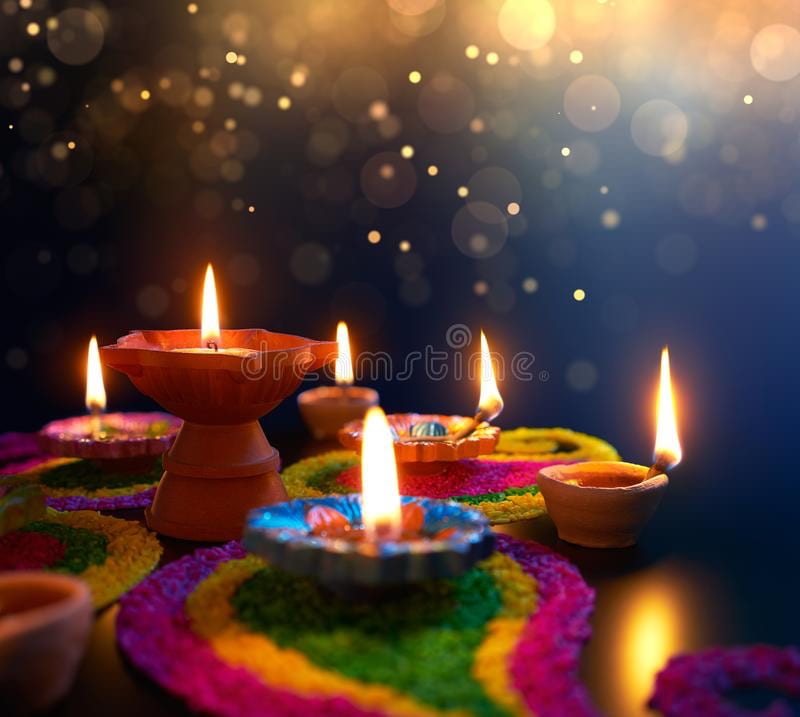What is Diwali?
Diwali is also known as Deepavali, Dipavali, Dewali, Deepawali or the Festival of Lights, a five days festival, celebrates a number of themes, including joy, forgiveness, knowledge, the goddess of wealth, Lakshmi, and the legend of Rama and Sita. Diwali is one of the most auspicious festivals celebrated by Hindus around the world. It is also celebrated by some Buddhists, Jains and Sikhs. Like most Hindu celebrations the whole community can join in. The essence of Diwali is to celebrate the victory of good over evil, bring light over darkness and courage over fear. Hindus, Sikhs and Jains both in India and across the world usually take part by decorating houses and public spaces with thousands of lights, candles and colourful designs. As well as the bright colours and glittering lights, there’s music, dancing, delicious food and a cresting wave of community feeling. The main way people in Lincoln and around the world will celebrate is by colourfully decorating their homes and neighbourhoods. Many Hindus will have their morning ritual bath and visit the temple for prayers or do prayers at the temple in their home. Blessings are also sought from elders.Families prepare favourite vegetarian dishes including multiple deserts. People wear new clothes they bought for the day. Family members exchange gifts and eat together. Later families and friends visit each other and exchange greetings and gifts. At sunset people light clay lamps known as dias. The flame at the end of the cotton wick fuelled by oil or Ghee. To further the celebrations into late evening, fireworks light up the whole neighbourhood.
This year however, with the advent of Covid-19, Diwali celebrations will look somewhat different. Though some parts of the festival will still be possible – the ritual of cleaning and decorating your home, dressing up and creating light displays – the more social aspects will be impacted by distancing rules.
When is Diwali 2020?
The festival always falls during October or November – depending on the new moon – on the 15th day of the Hindu month of Kartik. While the full festival runs for five days, the third day is usually the main event – though each day has its own unique significance.
Day one: “Dhanteras”. Dedicated to celebrating prosperity and the arrival of the goddess Lakshmi, who is believed to have emerged from the ocean on this day. “Dhan” means wealth and “teras” refers to the 13th day of a lunar fortnight on the Hindu calendar.
Day two: Naraka Chaturdasi or Chhoti Diwali (small Diwali). The demon Narakasura was destroyed by Lord Krishna and Kali on this day. This day is celebrated with early morning rituals or puja.
Day three: Amavasya (new moon day) or Lakshmi Puja. The darkest day of the month is also the most significant, being dedicated to the celebration of Lakshmi, the Hindu goddess of wealth, fortune, prosperity and beauty.
Day four: Govardhan Puja. Frequently celebrated as the day when Lord Krishna defeated Indra, the god of thunder and rain, and also the start of a new year.
Day five: Bhai Dooj. A day for celebrating the bond between siblings, with sisters praying for long and happy lives for their brothers and sharing food and gifts.
This year Diwali is from November 12 to 16, with Amavasya (new moon day) falling on the 14th.
The most beautiful and memorable part of Diwali are the clay lamps. You can make your own or buy online. Whether you live with a family or alone this Diwali light lamps to brighten your surroundings and the natural mysticism will lift your spirit and well being. If you feel helpless and want to help others then contact the Chaplain Services on how you can get involved.
Wishing you all a wonderful Diwali and a bright colourful year ahead.
